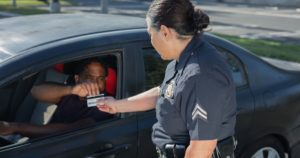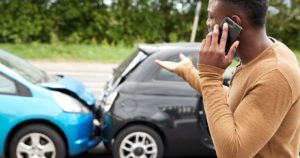
What Happens to Your License Right After a DUI Arrest?
When arrested for a DUI, the police confiscate your driver’s license. Learn when you can drive again after an arrest and what you should do to ensure you don’t lose your license for good.
Non-commercial drivers age 21+ are considered impaired when their blood alcohol level is .08 or more.
Drivers of commercial vehicles are impaired when their blood alcohol level is .04 percent or greater.

When arrested for a DUI, the police confiscate your driver’s license. Learn when you can drive again after an arrest and what you should do to ensure you don’t lose your license for good.

When looking for representation, it is important to find a lawyer that is right for you.

It is important that a driver files a police report after a car accident so that they can get proper compensation.

After a car accident, there are several steps that people need to take to ensure quality representation and compensation.

If someone under the age of 21 gets convicted of a DUI, they can face long-term legal ramifications and societal consequences.

If a student receives a DUI conviction it may have negative consequences on their financial aid and scholarships.
Minimum fine of $500, if age of passenger is less than 16, $1,000 fine. Maximum fine is $2,500.
Minimum 10 days in jail, maximum 364 days.
Community service hours from 240 to 480 if passenger is under 16 years.
Minimum fine of $1,250 if BAC .16% or more.
Can be charged as Class 2 Felony with a possible sentence of between 3-7 years in the Illinois Department of Corrections. 10 days to 7 years of community service. With minimum of 90 days if BAC was .16% or more
Minimum fine of $2,500 and maximum fine of $25,000
License revoked for 10 years.
Note that all DUI offenders who had a passenger under the age of 16 in the vehicle at the time of offense must complete 25 days community service in a children benefiting program.
The legal limits in Illinois on a breathalyzer is 0.08. That equates to about 2 drinks an hour, depending on your weight, metabolism and prior consumption. Remember what Scott always says, 2 is super, 3 take an uber.
If an officer believes that you are under the influence, they can request you to conduct field sobriety tests. The first test consists of the HGN test, which is to test and track your eyes. The second test is the walk and turn. The third test is the one leg stand. If you fail to comply with these tests, the officer can request that you do chemical tests. You can also be arrested if there are other signs of impairment such as erratic driving, balance issues, slurred speech, bloodshot eyes.
If you are charged with a DUI and there is a minor in your car, you can also be charged with child endangerment, which carries a possible maximum sentence of 365 days in jail, or a fine of up to $2,500. Collaterally, DCFS will also open investigation if you have a job with children. It can stay on your record for almost 10 years.
DUI penalties actually escalate the more arrests you have.
First Time Offense
You're looking at jail time of up to 365 days and a fine of $2,500 plus mandatory fees in the state of Illinois.
Second Time or Repeat Offense
If this is your second repeated offense, we're talking about mandatory jail time, minimum 5 days community service and a fine up to $2,500.
Third Time Offense
Can be Class 2 Felony, which carries a possible sentence of 3-7 years in the Illinois Department of Corrections.